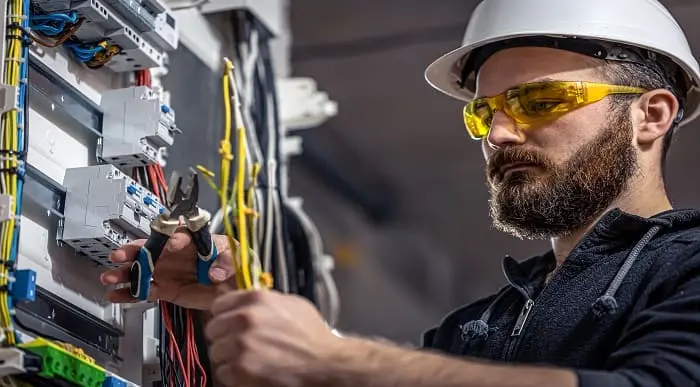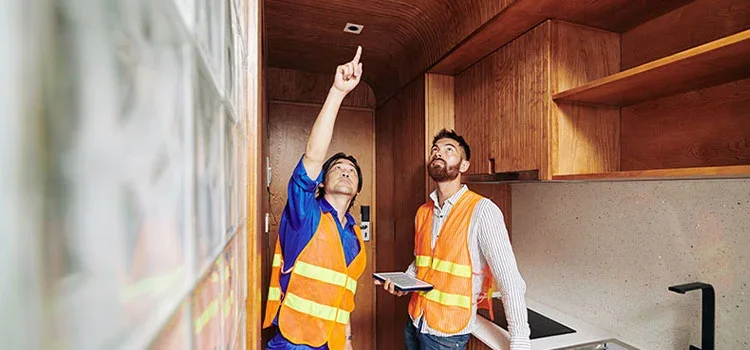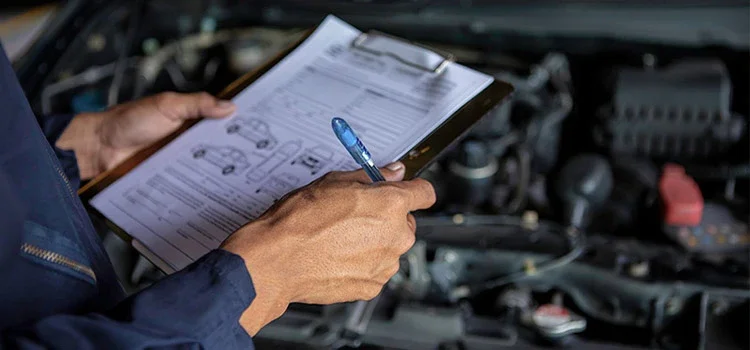Personal Development
How to Become an Electrician
In December 2019, Talk-business published an article with a piece of alarming news,
“A labour market report published in April 2019 found that the electrician skills gap in the UK is set to widen.”
It essentially means that the UK is currently facing a scarcity of qualified electricians. This scarcity is said to continue till past 2022. That’s why it’s an excellent opportunity for a satisfying career if you want to become an electrician. Because apart from their increasing demand, electricians are also the highest-paid trade workers in the UK. But just like many other people, you may be confused by the electrical qualifications. In this blog, we’ll discuss all that and more so that you understand everything you need to know about how to become an electrician.
So, let’s get started.
You can get into this role in either of these three ways.
- An apprenticeship
- A college course
- Applying directly
So as you can see, apprenticeship is one of the ways you can become a qualified electrician. But in this blog, we’ll also discuss how to become an electrician without an apprenticeship.
However, before delving into the other routes, let’s explore the apprenticeship route since it has traditionally been the most popular pathway to becoming an electrician.
Table of Content
- Apprenticeship
- How to Become an Electrician Without an Apprenticeship in the UK
- What education do you need to become an electrician?
- What qualifications do you need to be an electrician?
- Applying directly
- Career Path & Progression
- How to Become an Auto Electrician?
- How Fast Can I Become an Electrician?
- What Key Skills do I Need to Become an Electrician?
- What do Electricians do Day-to-Day?
- Are there a Lot of Jobs for Electricians?
- How Much Do Electricians Earn?
- How do electricians charge for their time?
- Conclusion
- What to Read Next:
Apprenticeship
One of the ways to become an electrician is to practice as an apprentice electrician under a licensed electrician for an extended period. It will get you some professional work experience. This has traditionally been the most popular pathway to fully qualified electrician status. But you’ll also hear from a lot of people that it’s their second choice if other options are unavailable to them. There are some reasons behind it. I’ll discuss them in just a bit.
During your apprenticeship, you’ll work alongside studying for a Level 3 course and NVQ for apprentices. The advantage of apprenticeships is that you’ll get hands-on experience from an electrician mentor regarding the real-world application of the theoretical knowledge that you’ll gain. Your NVQ course will cover a wide range of topics. They can include but are not limited to-
- Understanding health and safety legislation, practices and procedures
- Understanding the practices and procedures for the preparation and installation of wiring systems and electrotechnical equipment in building structures and the environment
- Maintaining electrotechnical systems and equipment
 Do you want to become an Electrician?
Do you want to become an Electrician?
What are the C&G (City and Guilds) qualifications needed to become an electrician?
After completing the classroom and workshop levels, you will obtain part one of the City and Guilds qualification. At this point, you’re already a qualified electrician. You can then take an AM2 exam at a local centre after being assessed at your place of work.
You can expect the whole process to take around two to three years on average to complete.
Although you’ll be working and earning a wage alongside your work, there are certain things that you need to consider if you choose to go through the apprenticeship route.
- As you’ve probably guessed, just like any other employment, you have to do your best to please your employer, maybe even more. Your work condition will depend primarily on how pleased they are with you. So, you’ll always feel the pressure to go that extra mile for your employer.
- You’ll probably earn a shallow pay scale during this time. It’ll be under the minimum wage most of the time. The payment situation that you’ll face may not be ideal for you, but you’ll have to learn to adjust to it. Make sure that you have an alternate source to fund your expenses. Don’t expect to live off of your apprenticeship wage.
- Usually, you will not receive any employee benefits. However, this depends mainly on your employer. Some employers will provide some employee benefits for you. But it will never be as adequate as what a full-time employee receives.
Entry requirements
- 5 GCSEs at grades 9 to 4 (A* to C), or equivalent, including English and maths, for an advanced apprenticeship.
How to Become an Electrician Without an Apprenticeship in the UK
Not everyone can find an employer or apprenticeship place in order to get trained. Fortunately, there are pathways to becoming an electrician without an apprenticeship too.
What education do you need to become an electrician?
Education is not that much of a concern for general electrician work. But if you want to be a qualified electrician or a specialist electrician, you need to be-
- A high school graduate
- At least 18 years of age
One of the ways to become an electrician without an apprenticeship is-
College courses
College courses are particularly popular with adult learners who have the time and the finances to invest in themselves to gain skills and qualifications upfront. You can take the following courses which will earn you an electrician’s qualifications.

Professional Electrician -13 Electrician Courses Bundle
What qualifications do you need to be an electrician?
It’s best to start with any electrician courses before professional courses, such as the Professional Electrician -13 Electrician Courses Bundle. After that, you can apply as a trainee electrician in the companies. These courses include-
- Level 2 Diploma in Access to Building Services Engineering (Electrical)
- Level 2 and Level 3 Diploma in Electrical Installation
- T Level in Building Services Engineering for Construction
So the progression that your education will follow is-
- General electrical skills
- Level 2 2365 Diploma
- Level 3 2365 Diploma
- Level 2357 NVQ (You’ll complete this while you’re working)
Typically, after completing the first 3 steps, you will be able to work as an electrician’s mate if you want to. The level 2 and the level 3 diplomas are often referred to as “Technical Certificates”. They will gain you access to the electrical industry. As you progress your qualification and your career further, you’ll become more and more attractive to employers. Needless to say that your earning figure will scale equally as well. The great thing about courses is that they are pretty flexible. You can learn whatever you need, whenever you need it, so long as you fulfil the minimum requirements to enrol on those courses.
If you want, you can complete your NVQ when the situation allows you to.
Entry requirements
- 2 or more GCSEs at grades 9 to 3 (A* to D), or equivalent, for a level 2 course
- 4 or 5 GCSEs at grades 9 to 4 (A* to C), or equivalent, for a level 3 course
- 4 or 5 GCSEs at grades 9 to 4 (A* to C), or equivalent, including English and maths for a T level
Applying directly
Suppose you have the experience and the relevant qualifications from the electrical or its relevant industry, for example, building services or electrical engineering. In that case, you may be able to move directly into electrical installation work.
Career Path & Progression
As you gain more experience and if you work on furthering your qualifications, you could move into-
- Electrical design engineering
- Project or site management
- Electrical contracts work or estimating them
- Set up your own business
- Train apprentices
- Teach in a further education college
How to Become an Auto Electrician?
If you want to be an electrician, you can choose to specialise in a particular field for a myriad of reasons. For example, you can specialise in the automotive field, agriculture industry or buildings electrician. One of the most demanding and high paying electrician jobs is as an auto electrician. They are experts in working with the electronics and electrical systems in motor vehicles.
Today’s vehicles contain an incredibly complex net of electrical systems. If you strip down your vehicle to just the electrical wires, you’ll see how they run like veins on our body to almost every part of your vehicle. From your infotainment system to your gauge cluster, even the digital gear selectors have complex electronic systems in them. Not to mention, safety systems like Anti-lock Braking System or ABS in motor vehicles and Traction Control also rely solely on inputs from their electronic units as all the controls are monitored and run by the calculations done on their computer. After the introduction of the autonomous braking system and self-driving technology from Tesla to the mass market, electronics in motor vehicles have reached an epic level.
You can already see how electronics have become an integral part of motor vehicles.
Not any off the shelf type mechanic can service these parts. Nowadays, they are so complex in design that you need to train yourself to know what you’re dealing with and learn to service it.
Plus, you’ll also need some soft skills like communication, problem-solving and time management to meet today’s electrician’s standard. You can obtain a professional certification on either of these two to start your career as an auto electrician-
- A level 1 diploma in motor vehicle maintenance
- A certificate in motor vehicles maintenance
Just like any other electrician, you can choose to take an apprenticeship to become an auto electrician. You can also choose to get professional training from a mentor.
You’ll be working alongside mechanical technicians in auto repair shops, production facilities etc., installing and servicing electrical systems in motor vehicles.
How Fast Can I Become an Electrician?
You can train as a general electrician through a trade school program in as little as nine months.
However, it usually takes between five and six years to become a journeyman electrician. The reason for this is that after completing a vocational program, your actual apprenticeship may last about four or five years.
What Key Skills do I Need to Become an Electrician?
One other thing you need to consider when deciding to become an electrician is the skills you’ll need. Along with your technical skills, you’ll also need some soft skills if you want to work efficiently and effectively. Because although your technical skills will get you most of the way, it’s the soft skills that will come in handy when you’re working with “out of the ordinary” problems and complex tasks. Since electrical pieces of equipment are most often complex, you’re bound to run into issues now and then. That is why soft skills are an essential asset for an electrician too. So let’s go through some of these soft skills. Later down the list, we’ll also talk about technical skills that you need to have.
- Problem-solving skills
- Strong analytical ability
- Maths knowledge to understand technical plans
- Being thorough and paying attention to detail
- Having the presence of mind of how safe you are and those with you when you’re handling dangerous machines
- Excellent verbal communication skills to both give and receive clear instructions
- Having the knowledge and the ability to use, maintain and repair electrical machines and tools. Having the skills to repair some relevant non-electrical pieces of machinery will also be helpful but not necessary
- Knowledge of building and construction and how they are laid out according to the layout given by the designer
- Having the dexterity in your hands to handle and service complex machinery and sensitive electronics
- Having a clear knowledge of using your equipment safely. Also, having a rough understanding of the first-aid procedures related to the accidents that happen in electrician’s workplace
- Basic customer service skills as you’ll frequently be dealing with colleagues and clients
- Having the basic knowledge of using a computer or a portable computer like a smartphone
In the case of an automotive technician, a good understanding of maths, computers, and electronics is quite necessary.
What do Electricians do Day-to-Day?
As an electrician, you will be responsible for ensuring the functionality and safety of electrical equipment. You’ll also have to ensure that the pieces of machinery that are under your supervision don’t pose any hazard to the personnel around them. Electrician job responsibilities in their workplace are not that different, assuming that they always work with all things electronics and electrical pieces of equipment. But suppose you serve as a specialist electrician like an auto electrician. In that case, your job role will vary wildly as each company or organisation will have different needs that you’ll have to satisfy.
However, the job role of an electrician can be condensed into some general bullet points.
- Inspecting electrical systems, wiring (according to wiring regulations) and equipment and making sure that they are functioning properly and are safe to handle
- Rewiring homes and commercial spaces during renovation
- Fixing faults or replacing parts that contain electrical stuff
- Handling general electrical equipment like sockets, switches, light fittings and appliances
- Laying cables that carry power or data or both
- Installing network systems for security or carrying data
- Working with street lights and their broader network of traffic management systems
- Fitting fibre-optic or CAT cables and checking their signal integrity with special tools
- Maintaining electrical motors, transformers and machinery with or without the help of an on-site mechanical engineer
- Installing electrical control panels or making them if necessary
- Programming or installing proper commands for artificial intelligence controlled buildings
- Designing clear technical plans or following one made by someone else
- Making sure you’re adhering to the safety regulations and learning about new electrical legislation
- Responding to any emergency such as power cuts and quickly sorting them out
- Working on varied sites like-
- Construction sites
- Domestic or commercial settings
- Offshore
- In unusual settings like in cramped conditions or at height
- At the client’s business or home
- On the streets
Are there a Lot of Jobs for Electricians?
The UK is currently in the midst of a chronic shortage of skilled tradespeople. Professions such as electricians, plumbers and bricklayers are all in demand because of this shortage. There are thousands and thousands of new homes and commercial spaces being built every day. The same goes for industrial infrastructures. But this rapid growth isn’t being matched by the number of qualified workers plying their trade.
So, it isn’t that there aren’t a lot of jobs for electricians. It’s, in fact, the complete opposite. The jobs are looking for more and more electricians.
How Much Do Electricians Earn?
The short answer is £18,000 for a starter electrician to £42,000 for an experienced one. These numbers are pulled directly from official data. If you compare an electrician’s earnings with other trades, you’ll see why we say this.
On average, each trade earns-
The data above is based on 2019 to 2020 Annual Survey of Hours and Earnings. It is taken from the Office of National Standards (ONS).
Newly qualified electricians who work for an employer can earn between £19,000 and £22,000 a year. However, as you gain more experience, this number shoots up.
If you want a more specified number for a specified area, these numbers will fluctuate. For instance, London currently holds the highest salaries for electricians at £35,802 a year. At the moment, the recorded lowest salary figure in the UK is in the South West, where the average electrical salary is £28,534. Also, note that these figures aren’t based on an average. Instead, they are based on a median calculation, which means that a small number of high earners has not influenced the average. As a result, these figures show a realistic salary for most electricians.
But please, do note that the salary ranges reported in this article are only intended as a guideline as salary figures change all the time. Carry your own research before committing to an area to practice as an electrician.
How do electricians charge for their time?
Self-employed electricians will charge a day rate or a fixed rate depending on the job. You will be able to charge a day rate or fixed rate depending on the job itself and the region you are working in.
Listed below is a rough guide of what you could expect to charge.
As we mentioned before, as a result of the skills shortage, electricians are in high demand. Research shows that a small number of electricians can earn around six times the average UK wage and take home up to £156,000 a year as a result.
To qualify for the higher pay grades, you may need to fulfil the following criteria-
- Trainee Electrician – Apprenticeship or electricians mate usually with C&G 2365 Diplomas
- Electrician – Relevant qualifications, Level 3 NVQ & AM2 (These days 2357)
- Approved Electrician – As per number 2 plus periodic inspection and testing qualification such as the C&G 2394/2395
- Site Technician – As per number 3 plus over 5 years experience (3 of which in a supervisory role) plus a level 4 qualification such as an HNC
The UK government wants to see 1 million new homes built in the next two years. So demand will increase even further, making qualifying as an electrician a financially lucrative and safe career path.
Conclusion
Every profession has its own set of pros and cons. There will always be challenges and hardships. Whether you’re in a white-collar job or a blue-collar job, these challenges are faced mainly by young professionals. Only after you gain experience in your profession and become a master in what you do will the demand curve rise rapidly. The same is true for an electrician.
Your challenges and your benefits will go hand in hand. If you’re passionate, the fact that electricians are in demand and will be in demand far into the future, you can do wonders in this career. The numbers don’t lie. You can already see that in the income figures mentioned in this article. As for how to become an electrician, your options are very flexible. All you need to do is choose according to your aspiration.
What to Read Next:



 Do you want to become an Electrician?
Do you want to become an Electrician? 




